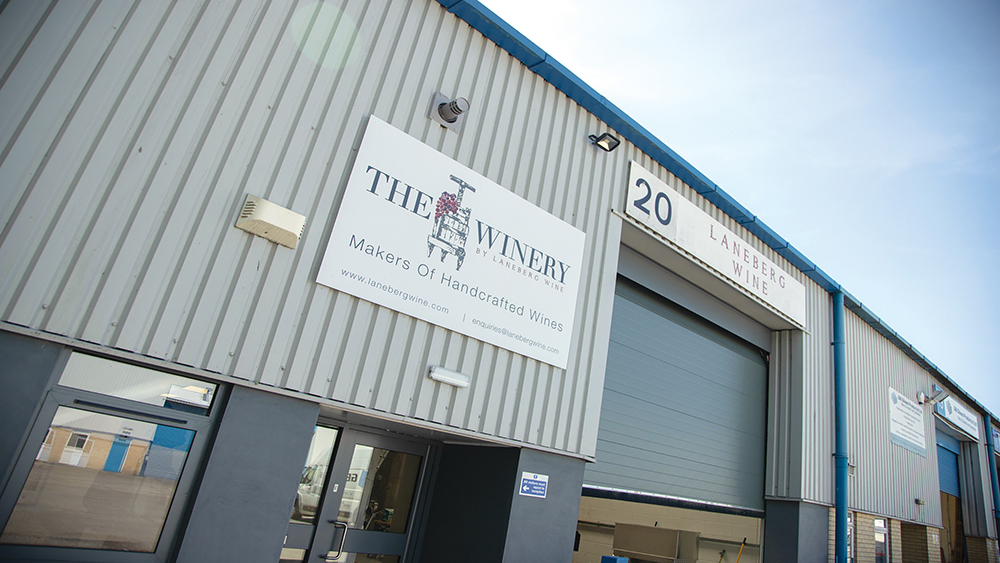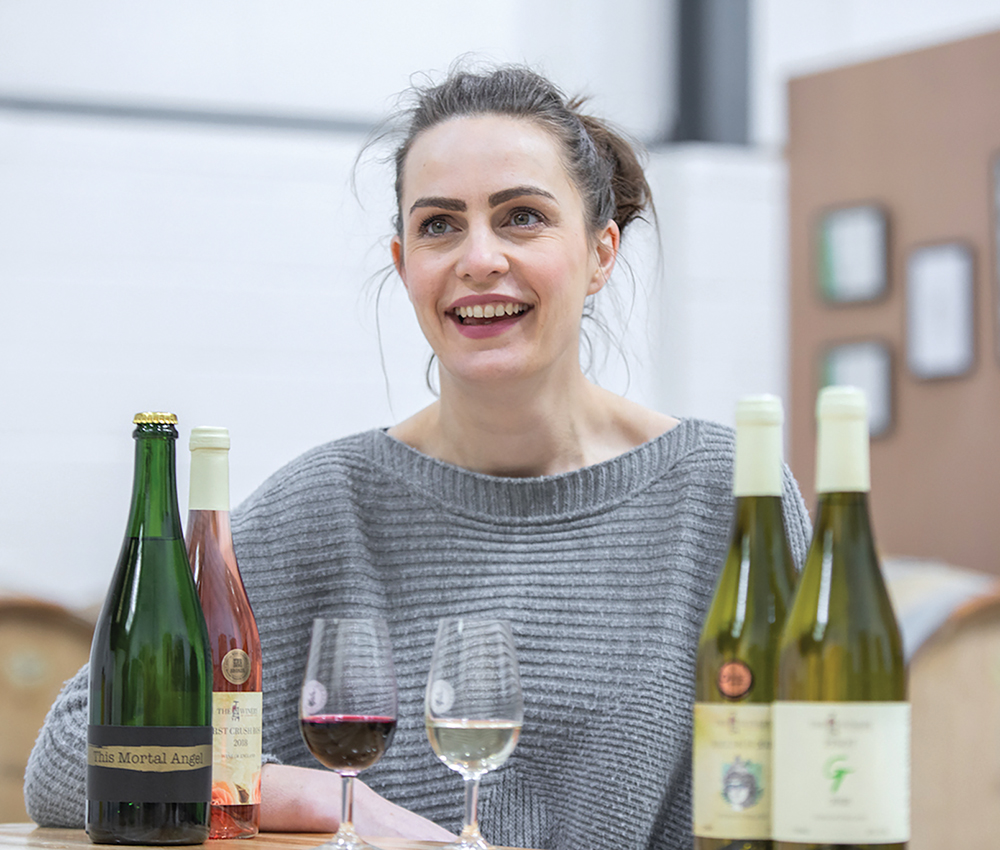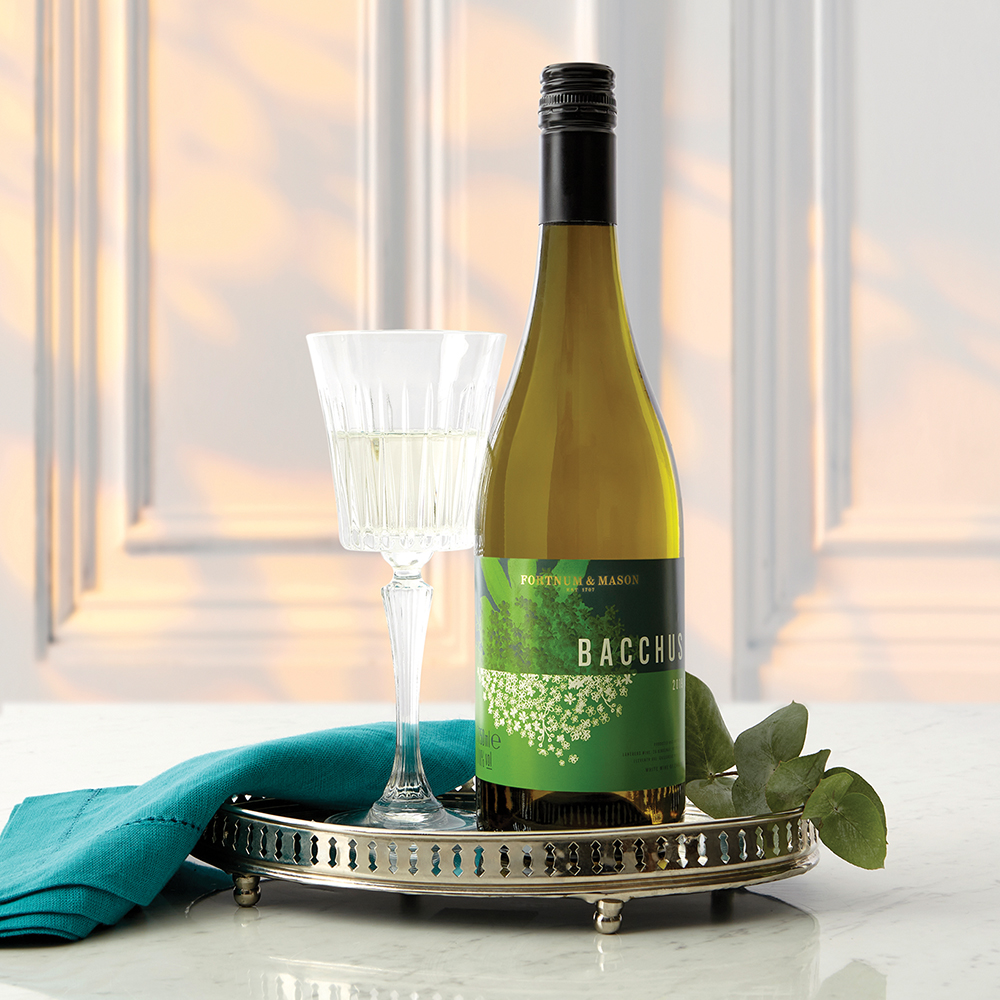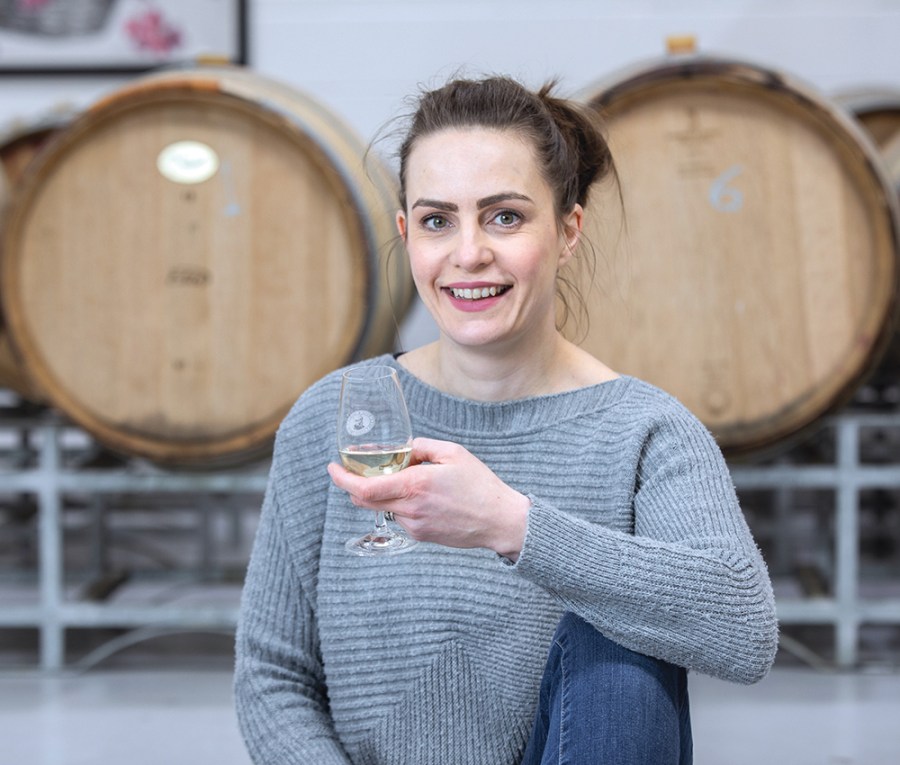Elise Lane set up urban winery Laneberg Wine in Gateshead three years ago and today her wines are stocked in Fortnum & Mason as its own label Bacchus. We find out how this happened and what’s next.
How and why did you set up your own winery?
I’m from up here. I grew up in Newcastle and Gateshead, and I went down to Oxford and studied for a masters in Chemistry, and after that, I didn’t really know what to do to apply my chemistry degree so I took a graduate role at a large financial services firm in London. Meanwhile, I was studying for my WSET 2 and 3, got to the end of the Level 3 about 10 years ago and it sort of dawned on me that I could apply my chemistry degree to winemaking.
It still took me another five years before I took the plunge. I left my job and took up a place at Plumpton College, to study for a postgraduate diploma in viticulture and oenology. My plan was to graduate, and maybe buy a vineyard and winery somewhere in the south. I worked in the winery at Plumpton for a while, teaching the students and making the wine in 2016, and after that my husband, who is actually from Hampshire, said “How do you fancy moving back home to be near your parents?”
What made you think an urban winery could work in Tyneside?
We came up here and I was inspired by London Cru and the other urban wineries down in London. We’ve got a unit in an industrial estate in Gateshead. I can see trees from the window, so it’s not totally industrialised; we are about five minutes from the countryside.
We decided to set up and some second-hand equipment. We’ve got tanks a press, and some other equipment as well. We did our first vintage in 2018. If you remember, that summer was incredible, and we actually bought our grapes from Leicestershire. It surprises a lot of people that there are grapes grown even that far north.

What styles of wine did you set out to make?
We made five wines and it was always my aim to start off with still wines, just purely for financial reasons. I always wanted to make Bacchus because I knew it was a wine that would convert the most normal, everyday wine drinkers to an English wine because of its similarities with Sauvignon Blanc.
We made our first Bacchus and it got some bronze medals last year, which was a massive surprise. In 2019, we got our grapes from Gloucestershire and Herefordshire.
Fortnum and Mason were doing this big tasting of lots of English wines from different wineries. They tasted a few of ours including our 2018 Bacchus and they asked for a sample of the 2019 in January and it went from there. They had narrowed it down, wanting our Bacchus as their Fortnum & Mason Bacchus.
This year we also launched our first red wine, made with Regent grapes. We make a carbonated white wine, inspired by the fizzy Bacchus that Chapel Down make which has gone really well for them.
All of our winemaking at the moment is based on affordability of equipment but that’s worked well because people really like it.

Do you plan to grow the business?
I’ve got one employee at the moment, Liam. I employed him last year and in an assistant winemaker role. Anything else, when there’s any bottling, I get friends and family to help us out.
We’re trying to grow and I started a crowdfunder in August, to try and raise some money to expand the business. I felt like it was a good time because of the publicity we have been getting for the Fortnum & Mason wine. It’s so difficult to expand production when you’ve got to buy all the grapes and then you don’t sell the wine until next year or the year after.
Was it a proud moment to be labelling your wine as Fortnum & Mason?
It was incredible, I couldn’t believe it. Fenwicks were our first stockist and I thought that was amazing when they stocked our Rosé last year.
This is an absolute step up from that; we’re actually providing somebody their own label wine. Speaking to Jamie, who is the buyer at Fortnum’s, he said they really liked the wine but also the story. We think of the business as an old English tradition but it also likes to do something a bit different.
When I lived in London I loved to go in at Christmas and see what I could get as treats and gifts for people. I can’t wait to get down and look at it in the shop.

What did you want to achieve when you set up the winery?
I was very open-minded to the wine we’d make and for who it would be. Thinking about it purely from a winemaker’s point of view, I thought it would just be our labels. I certainly didn’t think I’d be making wine for supermarkets because I don’t think that’s the right market for us or the right margin. Maybe when we’re a bit bigger, but we make 9,000 bottles a year at the moment and I’m trying to get up to 30,000. That’s probably the capacity for the building we’re in at the moment, but that’s still not very much. I think we might do some contract winemaking but I always thought we might move the winery to a more central location, have a bit more of a destination with winery tours.
I think it’s good to build your name slowly and not a big bang of rushing into lots of different things, but this Fortnum & Mason deal is hopefully going to make people want to invest in the future.
You promote your business really well; is that a conscious decision to focus on PR?
I use an online marketing agency and Lucy who does all that for us, although she has her own company, she’s almost like a staff member. I did everything to begin with and she’s owned it all and made it a bit more professional. She’s very experienced with Instagram; she’s quite young and grew up with social media.
I try to take the opportunities where I can though to promote our business. I think we are slightly different so there is a quirk there that makes it interesting for people. But I also think wine is a really competitive arena and especially English wine.
It’s a little bit more expensive than people would ordinarily pay for wine, so that idea of making sure you can reach as many customers as possible is really important. I’ve just commissioned a bit of market research this week to make sure we’re reaching the right people. It all helps.

How do you choose where you’re going to get your grapes from?
With the Leicestershire vineyard, it was a bit of fortune. Somebody reached out through the WineGB Midlands and North group saying that they wanted to sell their grapes and immediately I said I was interested in that. Last year I sent an email out to all of WineGB, the whole industry forum, and I got back so many replies. I think I was offered 250 tonnes and I wanted 10. I thought it was amazing and it opened my eyes to how much is available out there. Then this year, I used the relationships I’d already built to find out who was selling. There are a lot of vineyards that sell every year. There are some that make their own wine in some years. What I’m hoping to do is build an ongoing relationship when it’s been a successful wine. Knowing and meeting that vineyard team is so important though, learning that they are the experts in viticulture and trusting them.
Is there something particular you are looking for in your wines?
Our ethos is to let the grapes tell the story as much as they can. We try not to intervene too much with the natural side of it. That’s why Bacchus works so well because it grows so well in this country; you don’t need to mess about with it too much. You don’t need to deacidify it and I don’t really want to do things like that. Fortunately, we haven’t had to use fining on it either, it’s been protein stable the last two years. Mainly what I want, for the Bacchus, is to bring out as much of the fruity and elderflower characteristics as you can get from it.




